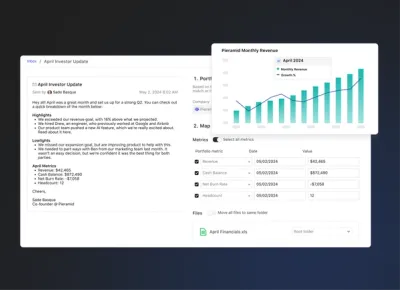
Navigating Pro Rata Rights: Essential Insights for Startup Entrepreneurs

Understanding pro rata rights is essential for startup founders navigating the complex world of venture capital. These rights, often included in SAFE (Simple Agreement for Future Equity) agreements, allow investors to maintain their proportional ownership as the company raises more capital. Pro rata rights help prevent dilution of investor shares, ensuring their initial investment value is preserved. For founders, comprehending these rights is crucial as they influence funding strategies, investor relations, and equity distribution, ultimately impacting the company's growth and stability.

What Are Pro Rata Rights?
Pro rata rights are provisions that allow investors to purchase additional shares in a company during future funding rounds to maintain their proportional ownership. These rights are crucial in preventing dilution, which occurs when new shares are issued, reducing the percentage ownership of existing investors. By exercising pro rata rights, investors can avoid a decrease in their ownership stake due to subsequent investments by new or existing investors. For startup founders, understanding pro rata rights is essential as they play a significant role in attracting and retaining investors, ensuring fair equity distribution, and supporting the company's growth trajectory.
Related resource: Pre-money vs Post-money: Essential Startup Knowledge
How Do Pro Rata Rights Work?
Pro rata rights are negotiated and agreed upon during the initial funding rounds of a startup. They grant investors the option—but not the obligation—to participate in future funding rounds by purchasing additional shares. This allows investors to maintain their initial ownership percentage as the company raises more capital.
When a startup plans a new funding round, it notifies investors with pro rata rights about the opportunity to invest. These investors can then decide to buy enough new shares to keep their ownership stake proportional to their original investment. Pro rata rights are especially common in early-stage investments, providing a mechanism for investors to support the company's growth while protecting their equity stake.
Shareholder Dilution
Shareholder dilution occurs when a company issues new shares, reducing the ownership percentage of existing shareholders. Pro rata rights directly address this issue by giving investors the ability to buy additional shares and maintain their proportional ownership. Without these rights, existing investors would see their ownership diluted as new investors come on board and additional shares are issued. For founders, managing dilution is critical as it affects the company's equity structure and investor relations. Pro rata rights help ensure that early investors, who took on initial risks, are not disproportionately disadvantaged in future funding rounds.
Pro Rata Rights Example
Pro rata rights are generally calculated on a percentage basis (example below) but there are rare circumstances where they can be calculated on a dollar basis.
- Investor ABC invested $100,000 at a $1,000,000 valuation (with pro rata rights) into Startup XYZ and owns 10% of the company.
- Startup XYZ is raising a future round at $2,000,000 valuation. Because of dilution, Investor ABC will now own less than 10% of the company.
- If Investor ABC exercises their pro rata rights, they will have the option to buy enough shares to maintain 10% ownership in Startup XYZ.
Related resource: Deal Flow: Understanding the Process in Venture Capital
Legal and Financial Implications
Understanding the legal and financial implications of pro rata rights is crucial for startup founders. These rights can significantly impact your company's equity structure and future funding strategies.
Legal Aspects of Pro Rata Rights in Investment Agreements
Pro rata rights are typically outlined in investment agreements during the early stages of fundraising. These agreements legally bind the startup to offer existing investors the option to purchase additional shares in subsequent funding rounds. It is essential for founders to clearly define the terms and conditions of pro rata rights in these agreements to avoid any future disputes. Consulting with a legal expert to draft and review these terms is a best practice to ensure that all parties understand their rights and obligations.
Financial Implications for the Startup’s Equity and Capital Structure
The exercise of pro rata rights impacts the startup's equity and capital structure. When investors exercise these rights, they inject additional capital into the company, which can be beneficial for funding growth and operations. However, allowing investors to maintain their ownership percentage can limit the availability of shares for new investors, potentially affecting the valuation and attractiveness of the startup to future investors. Founders must carefully balance the need for new capital with the rights of existing investors to maintain a healthy and appealing equity structure.
Best Practices for Compliance and Transparency
By following these best practices, founders can foster trust with their investors, ensure legal compliance, and maintain a balanced capital structure that supports the startup's growth.
- Clear Documentation: Ensure all terms related to pro rata rights are explicitly stated in investment agreements.
- Regular Communication: Keep investors informed about upcoming funding rounds and their pro rata rights well in advance.
- Legal Review: Periodically review investment agreements with legal counsel to ensure they comply with current laws and regulations.
- Equity Management: Use reliable equity management tools to track ownership stakes and the exercise of pro rata rights accurately.
Related resource: Seed Funding for Startups: Our Complete Guide

Alternatives to Pro Rata Rights
While pro rata rights are a popular mechanism for protecting investors' ownership stakes in startups, there are several alternative strategies that founders can consider. These alternatives offer various benefits and protections for investors, and can sometimes be more appealing depending on the specific circumstances of the startup and its funding strategy. Here are some key alternatives to pro rata rights:
1. Pre-emption Rights
Pre-emption rights provide investors with the first opportunity to purchase new shares before they are offered to other investors. This mechanism ensures that existing investors can maintain their ownership percentage in the company if they choose to invest additional capital.
These rights are particularly valuable for early investors who have a vested interest in the company's growth and success. By exercising pre-emption rights, these investors can increase their stake and continue to play an influential role in the company's development. This not only secures their investment but also strengthens their commitment to the company's long-term vision.
For founders, offering pre-emption rights can be an attractive proposition to early investors, as it demonstrates a commitment to protecting their interests and encouraging their ongoing participation. This can help build strong, supportive relationships with investors who are more likely to provide additional funding, guidance, and resources as the company grows.
2. Drag-Along and Tag-Along Rights
Drag-along and tag-along rights are provisions that give investors the ability to sell their shares alongside existing investors during specific events, such as an acquisition or an initial public offering (IPO).
Drag-Along Rights: These rights allow majority shareholders to compel minority shareholders to join in the sale of the company under the same terms and conditions. This ensures that the sale can proceed smoothly without minority shareholders blocking the transaction, which can be crucial for achieving favorable terms in a sale.
Tag-Along Rights: These rights enable minority shareholders to join a sale initiated by majority shareholders. This means that if a significant shareholder sells their stake, minority shareholders can sell their shares on the same terms, ensuring they are not left behind in a potentially lucrative deal.
Both drag-along and tag-along rights offer significant security and liquidity for investors. They protect minority investors by ensuring they can participate in major liquidity events, thereby aligning their interests with those of majority shareholders. This alignment can incentivize investors to remain committed to the company over the long term, as they have assurances that they will not be excluded from important financial opportunities.
For founders, offering these rights can make the company more attractive to investors by providing clear exit strategies and promoting investor confidence in the company's governance and future prospects.
3. Participation Rights
Participation rights are similar to pro rata rights but come with a key difference: they allow investors to invest a specific amount in future funding rounds, rather than an amount proportional to their current stake. This predetermined amount can be beneficial for both startups and investors in several ways.
For startups, participation rights offer greater flexibility in managing their capital structure and equity distribution. By agreeing on a fixed investment amount in advance, founders can better plan for future funding needs and avoid unexpected dilution. This also simplifies the process of raising new capital, as the terms of additional investments are clearly defined from the outset.
For investors, participation rights provide the opportunity to continue supporting the company without the need to maintain a proportional ownership percentage. This can be particularly appealing for investors who want to stay involved and benefit from the company's growth but may not have the resources or desire to increase their investment significantly in later rounds.
Participation rights balance the interests of startups and investors, offering a structured yet flexible approach to future investments. They help ensure ongoing support and involvement from early investors while allowing the company to navigate its funding strategy more effectively.
4. Discounted Future Rounds
Offering discounted future rounds is another strategy startups can use to attract and retain investors. This approach involves providing investors with a discount on the share price in subsequent funding rounds, serving as an incentive for them to participate.
For investors, discounted future rounds present an attractive opportunity to secure additional value from their investment. By purchasing shares at a reduced price, investors can potentially enhance their returns if the company continues to grow and increase in value. This incentive can be particularly appealing to those looking to maximize their investment gains and maintain their support for the company over the long term.
For startups, offering discounted share prices in future rounds can be an effective way to secure necessary funding more easily. This approach can make the investment more appealing, especially in competitive markets where multiple startups are vying for capital. Additionally, by incentivizing existing investors to continue their support, startups can foster strong, ongoing relationships with their investor base, which can be beneficial for future fundraising efforts and overall growth.
5. Convertible Notes with Liquidation Preference
Convertible notes with liquidation preference are an effective fundraising tool for startups, offering a blend of flexibility and investor protection. These financial instruments convert into equity based on specific terms during a future funding round or other triggering events, such as an acquisition.
Convertible Notes: The primary advantage of convertible notes is that they allow startups to raise capital without setting an upfront valuation. This is particularly beneficial in the early stages when accurately valuing the company can be difficult. The notes typically convert into equity at a later date, often at a discount to the future share price or with a valuation cap, ensuring early investors receive favorable terms.
Liquidation Preference: Adding a liquidation preference to convertible notes provides additional security for investors. In the event of an exit, such as a sale or liquidation of the company, investors with liquidation preference are prioritized for repayment before common shareholders. This helps protect their investment if the company's exit value is lower than expected or if the company faces financial challenges.
Benefits for Startups:
- Fundraising Flexibility: Startups can secure needed funds quickly without the pressure of determining a valuation prematurely. This flexibility can be crucial in fast-paced or uncertain market conditions.
- Investor Attraction: The combination of potential equity upside and downside protection through liquidation preference makes these notes attractive to investors, increasing the likelihood of securing capital.
- Aligned Interests: Offering favorable conversion terms and repayment priorities helps align the interests of investors and startups, fostering strong and supportive investor relationships.
6. No Dilution Protection
Some startups choose not to offer any dilution protection to their investors. This approach can streamline the negotiation process and expedite fundraising, as it removes the need to discuss and agree upon complex terms related to ownership percentage maintenance and future share purchases.
Advantages for Startups:
- Speed and Simplicity: Without dilution protection, the fundraising process can be faster and less complicated. This simplicity can be beneficial for startups needing to secure capital quickly or wanting to avoid lengthy negotiations.
- Flexible Capital Structure: By not committing to dilution protection, startups maintain greater flexibility in managing their equity and capital structure. This can be advantageous when navigating multiple funding rounds and dealing with various investor demands.
Disadvantages for Investors:
- Less Attractive in Competitive Markets: In markets where startups are vying for investor attention, the lack of dilution protection can be a significant drawback. Investors may prefer opportunities that offer safeguards for their investment, such as pro rata rights or other dilution protections.
- Increased Risk: Investors without dilution protection face the risk of their ownership percentage being significantly reduced in future funding rounds. This potential dilution can diminish their influence and the value of their investment, making the opportunity less appealing.
For founders, the decision to forego dilution protection should be weighed carefully. While it can simplify and accelerate the fundraising process, it may also limit the pool of interested investors, particularly those seeking more security for their investment. Balancing the need for speed and simplicity with investor expectations and competitive market conditions is crucial for successful fundraising and long-term growth.
Why Are Pro Rata Rights Important to Investors?
Pro rata rights are often seen as a main advantage for early-stage venture firms and investors. The ability to follow on and maintain their ownership percentage is vital to the firm’s ability to make an exponential return on their investment.
Investors often have different views about extending their pro rata rights. For example, Point Nine Capital guarantees they’ll invest in any of their portfolio companies’ Series A round. As Christoph Janz, Managing Partner at Point Nine, explains:
- In ~ 80–90% of cases, we want to do our pro-rata anyway.
- In ~ 5-10% of cases, we don’t want to but kind of have to, to prevent harm from the portfolio company due to bad signaling.
- Committing to our pro-rata in the remaining ~ 10% might lead to some sub-optimal capital allocation, but this will be far offset by all the other advantages.
On the flip side, angel investors or smaller firms may not have the capital to continue to invest and choose to waive their rights. However, firms like Point Nine may not have the option to continue to invest, even if they would like to.
According to Fred Wilson, Founder of Union Square Ventures, “In the last ten or so years, companies, lawyers, boards, management teams, founders, and in particular late-stage investors have been disrespecting the pro rata right by asking early-stage VCs to cut back or waive their pro rata rights in later stage financings.”
When a company sets out to raise a later round, the company is likely doing well, so allocations get tighter. The only way for these later firms to get their desired piece of the pie is to ask early-stage investors to hold back from investing.
Understandably, this can be a major point of disappointment and frustration for early-stage firms, as they’ve taken the risk of investing early, which helped make it possible for the company to grow. Ultimately, a pro rata right is a legal obligation and is seen as an agreement a founder is expected to live up to.
When Would an Investor Waive Their Pro Rata Rights?
As mentioned earlier, there are instances where an investor might waive pro rata rights:
- Lack of Capital: If raising at a later stage or high valuation, some early-stage investors with pro rata rights simply might not have enough capital to invest.
- Poor Data: If an investor does not believe in the company or its investment ability, they might pass.
- Against Thesis: Sometimes a fund has an investment thesis that might keep capital or ownership constrained, so they might waive their rights.
Build Meaningful Relationships with Your Investors

Founders can leverage monthly investor updates to tap into their investor’s network, capital, and experience to move their business forward. Raise capital, update investors and engage your team from a single platform. Try Visible free for 14 days.
Understandably, pro rata can be a tough conversation for both founders and VCs. On one hand, a pro rata right is a legal contract and something investors should expect to be honored when the time comes. While on the other hand, founders are getting pulled in every direction and are obliged to make the right decision for their company.
As Mark Suster puts it, “Make sure you have an open conversation with your early investors about their interest in participating in subsequent rounds as those fundraisings become imminent and that might range from ‘Are you willing to show some support in the next round, which might be important to incoming investors?’ to, ‘Are you willing to step back a small amount from pro rata to make room for new investors if need be?’ Knowing how your investors are thinking is critical as is open communication.”
The simplest way to keep all parties happy? Form a relationship and have the difficult conversations before you’re put in a tough spot under the wire. Founders, don’t be afraid to have open and difficult conversations with your investors. They are invested in what is best for your company as well.
If investors are not aware of a portfolio company raising funds and the potential for a new investor taking a larger percentage, there is clearly something broken in the communication process by both parties. A simple way to up your communication skills? A monthly investor update. Try Visible free for 14 days.



